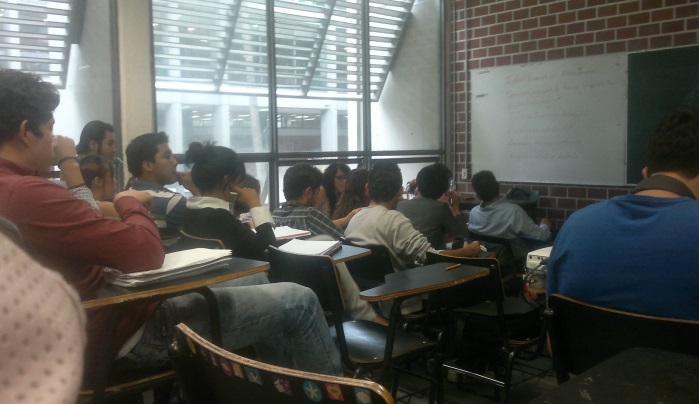Technological change in the region has been slower than in other countries, but it is inevitable, so it should be a priority for governments to prepare education systems to deal with this transformation.
Photo: Wikimedia
In its report Learning Better: Public Policy for Skills Development, the Inter-American Development Bank (IDB) states that although most Latin American countries invest in education a similar percentage of their GDP to that of developed countries, these resources are not well-channeled to teach students the skills required in today’s world.
Technological change in the region has been slower than in other countries, but it is inevitable, so it should be a priority for governments to prepare education systems to deal with this transformation.
The report highlights that Latin American countries have not performed well in the Programme for International Student Assessment (PISA). More than 60% of the students were unable to solve mathematical problems for their level.
Another problem is that the quality of education is unevenly distributed. “In standardized tests that measured socio-emotional, cognitive, and language skills, a child born in a high-income household had scores that are 40-60 points higher than a child born in a low-income household,” says IDB.
Governments must change their approach to educational spending with the goal of a greater impact, avoiding public policies based on speculation.
“Rigorous evidence is the light that exposes successful and failed approaches and provides a solid basis for decision making. Armed with this knowledge, policy makers can avoid expanding ineffective programs and instead scale up cost-effective programs.”
The Bank recommends investing in early childhood education, as cognitive and socio-emotional skills begin to develop at an early age. We need to boost high-quality childcare, K-12 institutions and parenting programs.
“The development of academic skills during childhood focuses on core subjects such as math and language. Mastering these core academic skills is essential to competing in today’s world.”
Although education at home and at school is important, job training is essential to develop specific skills, however, the training offered by companies in the region is deficient.
“The percentage of firms offering training is more than 10 percentage points lower than East Asia and the Pacific … Companies must learn how to train their workers in relevant tasks and motivate them to increase the productivity.”
The full report can be downloaded here.
This article from Observatory of the Institute for the Future of Education may be shared under the terms of the license CC BY-NC-SA 4.0 
)
)


)